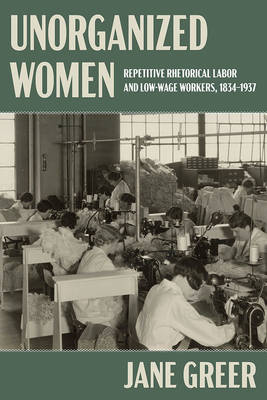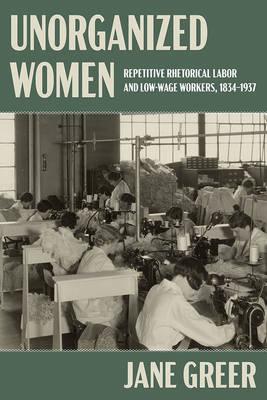
- Afhalen na 1 uur in een winkel met voorraad
- Gratis thuislevering in België vanaf € 30
- Ruim aanbod met 7 miljoen producten
- Afhalen na 1 uur in een winkel met voorraad
- Gratis thuislevering in België vanaf € 30
- Ruim aanbod met 7 miljoen producten
Zoeken
€ 91,95
+ 183 punten
Omschrijving
Across a range of industrial, domestic, and agricultural sites, Greer shows how repetitive discursive performances served as rhetorical tools as women workers sought to rescript power relations in their workplaces and to resist narratives about their laboring lives. The case studies reveal noteworthy patterns in how these women's words helped to construct the complex web of class relations in which they were enmeshed. Rather than a teleological narrative of economic empowerment over the course of a century, Unorganized Women speaks to the enduring obstacles low- and no-wage women face, their creativity and resilience in the face of adversity, and the challenges that impede the creation of meaningful coalitions. By focusing on repetitive rhetorical labor, this book affords a point of entry for analyzing the discursive productions of a range of women workers and for constructing a richer history of women's rhetoric in the United States.
Specificaties
Betrokkenen
- Auteur(s):
- Uitgeverij:
Inhoud
- Aantal bladzijden:
- 212
- Taal:
- Engels
- Reeks:
Eigenschappen
- Productcode (EAN):
- 9780822947554
- Verschijningsdatum:
- 14/02/2023
- Uitvoering:
- Hardcover
- Formaat:
- Genaaid
- Afmetingen:
- 152 mm x 234 mm
- Gewicht:
- 453 g

Alleen bij Standaard Boekhandel
+ 183 punten op je klantenkaart van Standaard Boekhandel
Beoordelingen
We publiceren alleen reviews die voldoen aan de voorwaarden voor reviews. Bekijk onze voorwaarden voor reviews.











